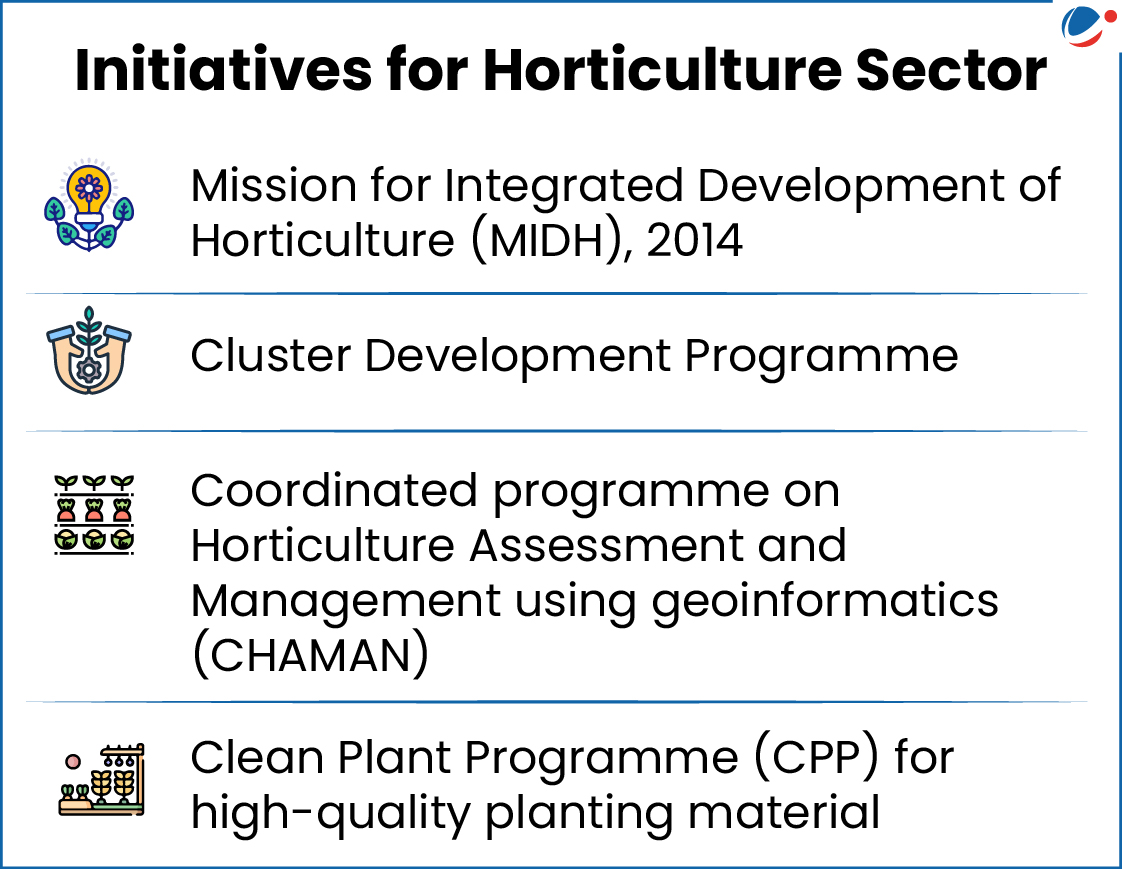Diversifying agriculture towards high-value crops like horticulture can boost rural economies, as noted in a recent RBI Bulletin.
About Horticulture Sector
- It is a vast and diverse field that encompasses the cultivation, production, processing, and marketing of fruits, vegetables, flowers, and ornamental plants.
- India is the second-largest producer of fruits and vegetables globally, next to China.
Key trends in Horticultural Diversification
- Primary Engine of Agricultural Growth: Contribution to Agriculture Gross Value Added (GVA) is 33%.
- Shifting Dietary Preferences: Rising share of fruits in total food expenditure in both rural and urban areas.
- Participation of Small and Marginal Farmers: Allocating a larger share of their landholdings to horticulture.
Key Issues/Challenges

- Yield Fluctuations: For instance, grape and sapota yields declined between 1992-93 and 2021-22.
- Inadequate Post-Harvest Storage Capacity: India experiences substantial post-harvest losses, estimated at around ₹1.5 trillion annually.
- Price Volatility: E.g. weather conditions causing fluctuations in prices for Tomato, Onion and Potato (TOP).
Future Policy Considerations:
- Stronger Market Linkages: Establishing robust connections between farmers and both export markets and urban consumers is critical.
- Intercropping: Promoting intercropping of horticultural and non-horticultural crops can improve yields, enhance soil health, and augment farmer incomes.
- Agricultural Research: To develop technologies that address emerging challenges like climate change and pest management, while also improving productivity.
- Develop Agro-processing Industries: For higher export growth, reduce post-harvest losses, and generate employment opportunities in the rural economy.



